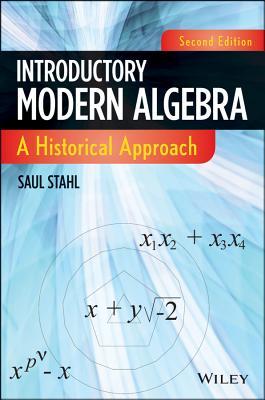"Stahl offers the solvability of equations from the historical point of view...one of the best books available to support a one-semester introduction to abstract algebra."
--CHOICE
Introductory Modern Algebra: A Historical Approach, Second Edition presents the evolution of algebra and provides readers with the opportunity to view modern algebra as a consistent movement from concrete problems to abstract principles. With a few pertinent excerpts from the writings of some of the greatest mathematicians, the Second Edition uniquely facilitates the understanding of pivotal algebraic ideas.
The author provides a clear, precise, and accessible introduction to modern algebra and also helps to develop a more immediate and well-grounded understanding of how equations lead to permutation groups and what those groups can inform us about such diverse items as multivariate functions and the 15-puzzle. Featuring new sections on topics such as group homomorphisms, the RSA algorithm, complex conjugation, the factorization of real polynomials, and the fundamental theorem of algebra, the Second Edition also includes:
- An in-depth explanation of the principles and practices of modern algebra in terms of the historical development from the Renaissance solution of the cubic equation to Dedekind's ideals
- Historical discussions integrated with the development of modern and abstract algebra in addition to many new explicit statements of theorems, definitions, and terminology
- A new appendix on logic and proofs, sets, functions, and equivalence relations
- Over 1,000 new examples and multi-level exercises at the end of each section and chapter as well as updated chapter summaries
Introductory Modern Algebra: A Historical Approach, Second Edition is an excellent textbook for upper-undergraduate courses in modern and abstract algebra.
